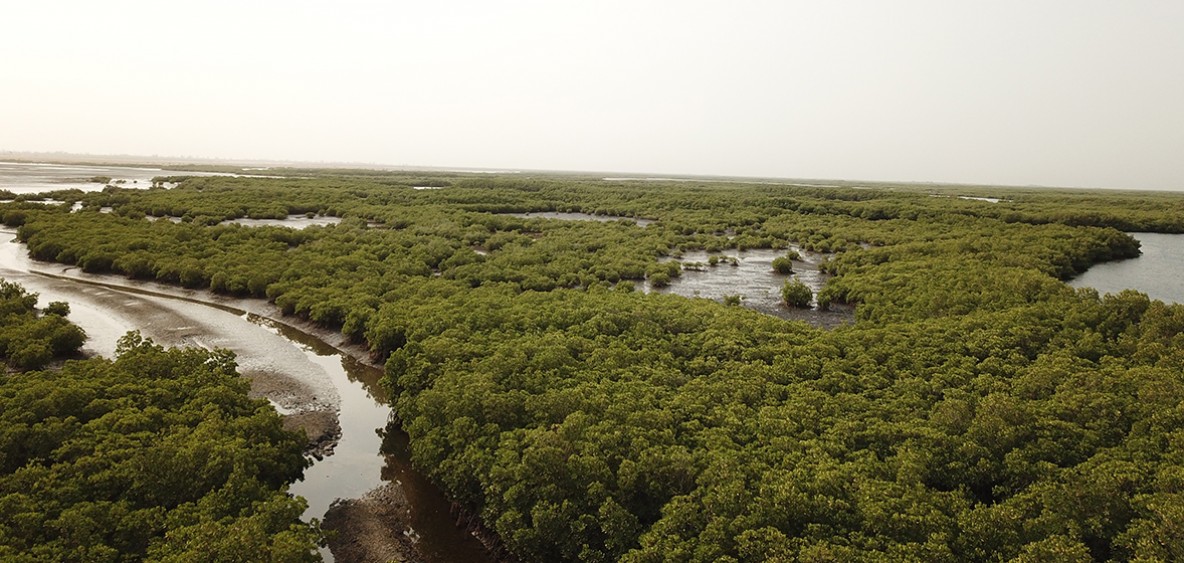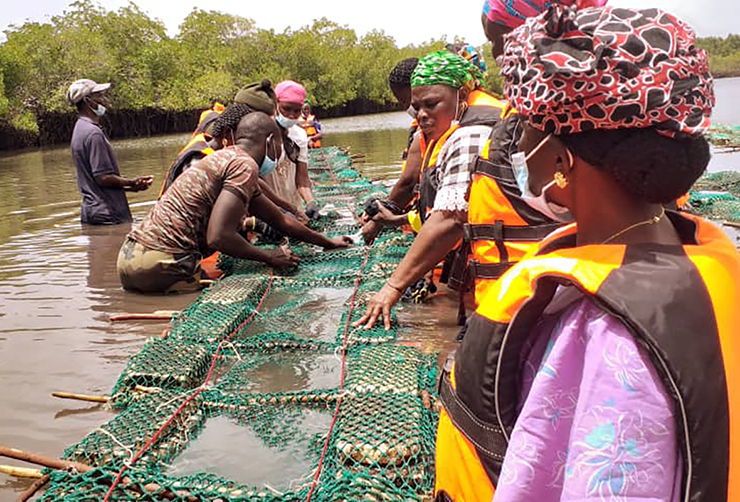 Senegal’s Saloum Delta is home to one of the largest mangrove reserves in Africa. Photo taken by Yakhya Gueye.
Senegal’s Saloum Delta is home to one of the largest mangrove reserves in Africa. Photo taken by Yakhya Gueye. Since the 1970s, Senegal’s Saloum Delta has lost more than 45,000 hectares of mangroves. RFS is working with local NGOs and Mangrove User Associations to restore and protect these coastal forests by introducing alternative income generating activities that reduce community pressure on the ecosystem.
In Senegal’s Saloum Delta, mangrove forests are disappearing at an alarming rate. Spanning 180,000 hectares, the delta is part of “les Rivières du Sud”, an area along the coast of West Africa that is home to one of the largest continuous mangrove forests in the world.
Since the 1970s, the Saloum Delta has lost more than 45,000 hectares of mangroves. Climate change, pollution, expansion of agricultural and aquaculture activities, overharvesting, construction of dams and irrigation systems, and urbanisation have led to widespread degradation of these coastal forests.
Rural coastal communities bear the brunt of this loss. There are direct economic impacts due to loss of wood supply, charcoal production, and fish and oyster supply for household consumption, sale or trade. There are impacts to agricultural systems and food security through increased salinization of soil, loss of soil water content, and soil erosion. There are direct impacts to the provision of water as water supply and quality declines, the provision of energy as biofuel sources are depleted, and an increase in greenhouse gas emissions through loss of carbon sinks. Communities are also threatened by an increased exposure to flooding from storms and sea level rise, leaving vulnerable communities even more exposed to the impacts of climate change.
In order to reverse this trend, the GEF-funded, IFAD-implemented Resilient Food Systems (RFS) programme is working with communities in Senegal to restore mangrove ecosystems and rehabilitate 800 hectares of land within targeted watershed areas. Implemented by the Government of Senegal, with joint support from IFAD and UNIDO, the Agricultural Value Chains Resilience Support Project (PARFA) is one of 12 RFS country projects working to address land degradation and improve food security in the dryland regions of sub-Saharan Africa.
Together with Wetlands International Africa and Enda Energie, two organisations with extensive experience in the region, the project has adopted an integrated approach to restoration, focusing on supporting communities in the preparation of watershed management plans, providing technical and financing support to set up mangrove plantations and promoting alternative income-generating activities.

Key to this process is the involvement of Mangrove User Associations (MUAs). MUAs are formal organisations that bring together farmers, community representatives, and local leaders to sustainably manage the use of mangrove resources within communities. They serve as a platform for participatory decision-making to govern the use of mangroves with the ultimate goal of enabling more sustainable use and more equitable sharing of benefits.
MUAs have been critical in introducing the project communities to new income generating activities and production practices that will reduce pressure on watershed areas and provide more sustainable incomes for vulnerable households. Through training activities, technical support, and the provision of key inputs, the project partners have been working with local MUAs to promote sustainable oyster cultivation, equipping over 1,500 women with the tools they need to harvest, preserve and market fresh oysters.
The continued involvement and support of the MUAs is critical to ensuring the sustainability of the project’s outcomes. By involving MUAs in the very beginning stages of planning, management and implementation, the country project team is building a foundation of inclusion and local ownership that will be instrumental to the sustainability of mangrove restoration and conservation projects, now and in the future.
Subscribe to our monthly newsletter to receive updates on stories directly from the field across all our projects, upcoming events, new resources, and more.